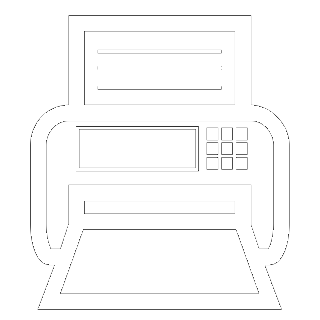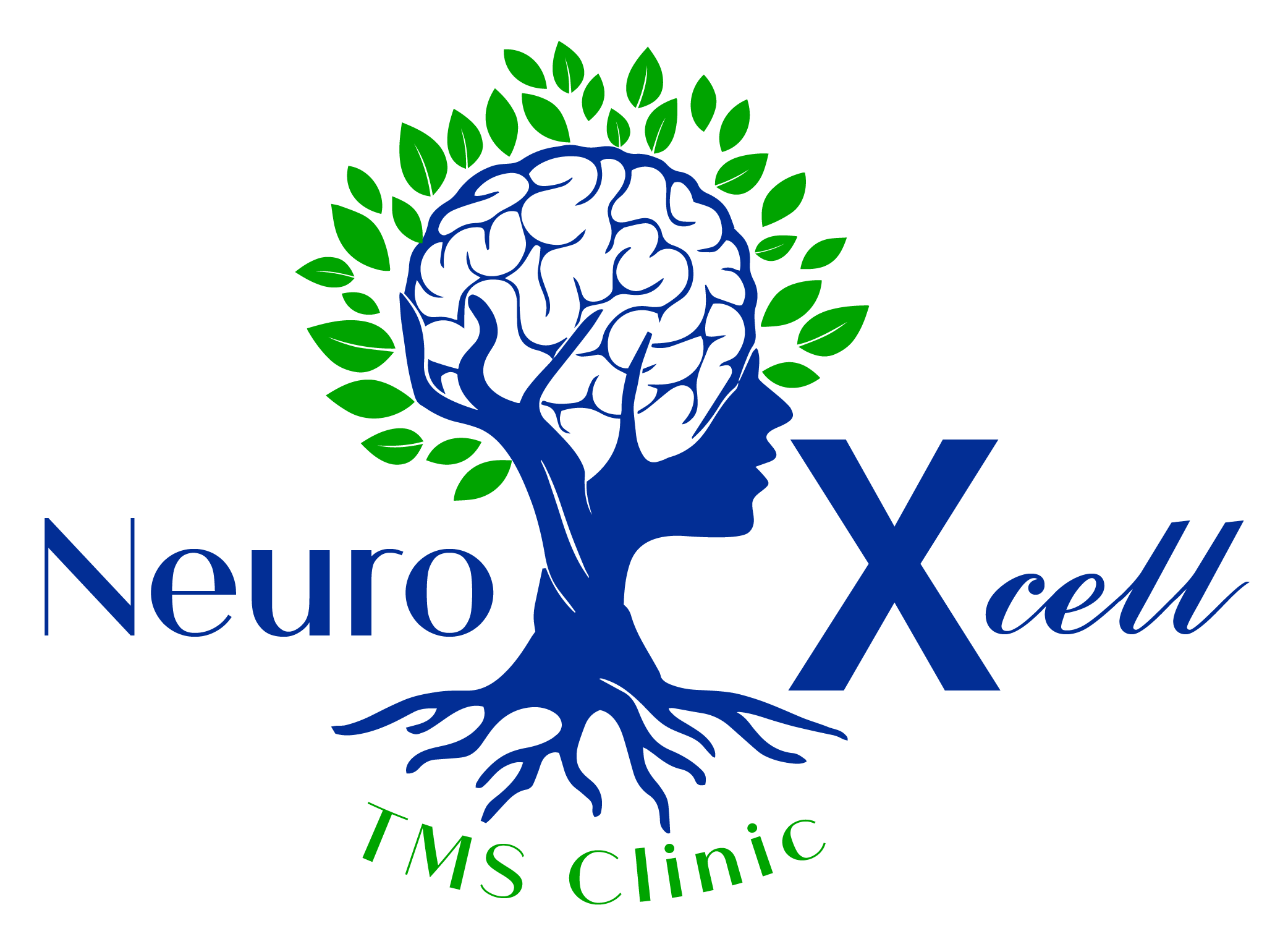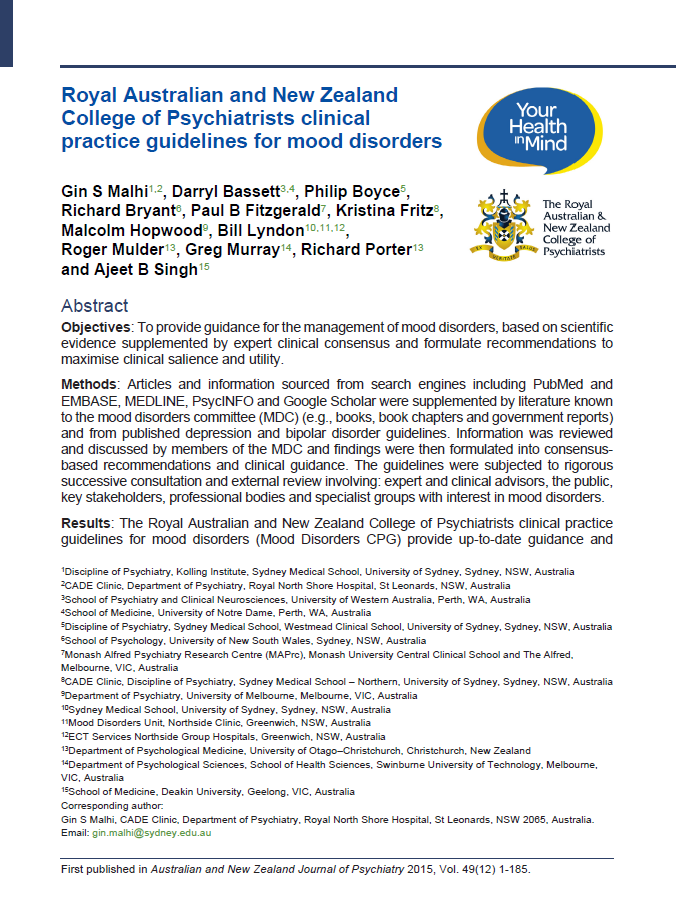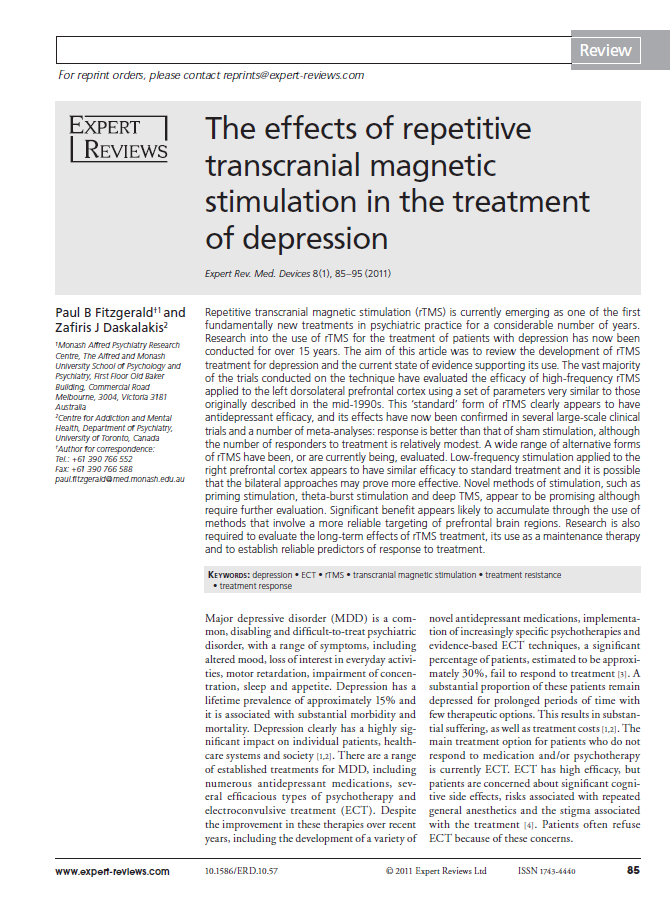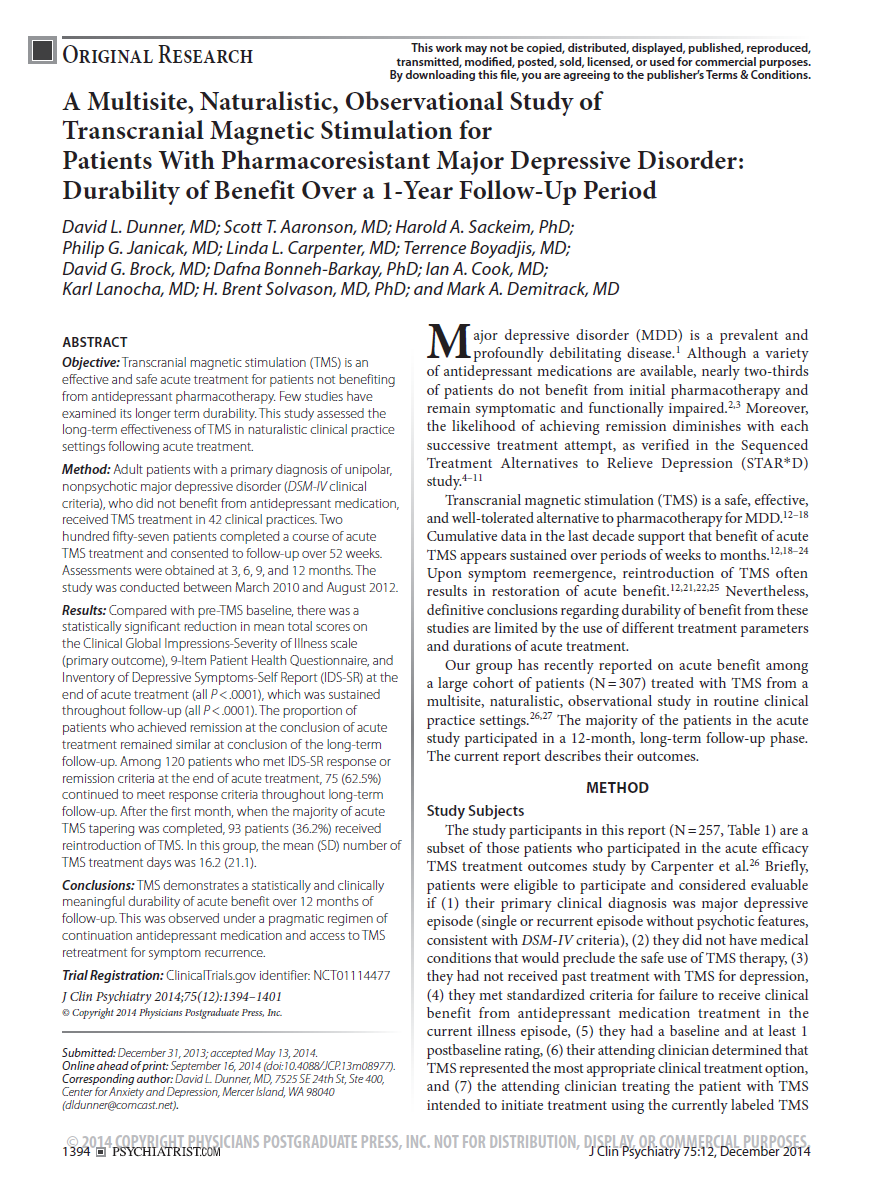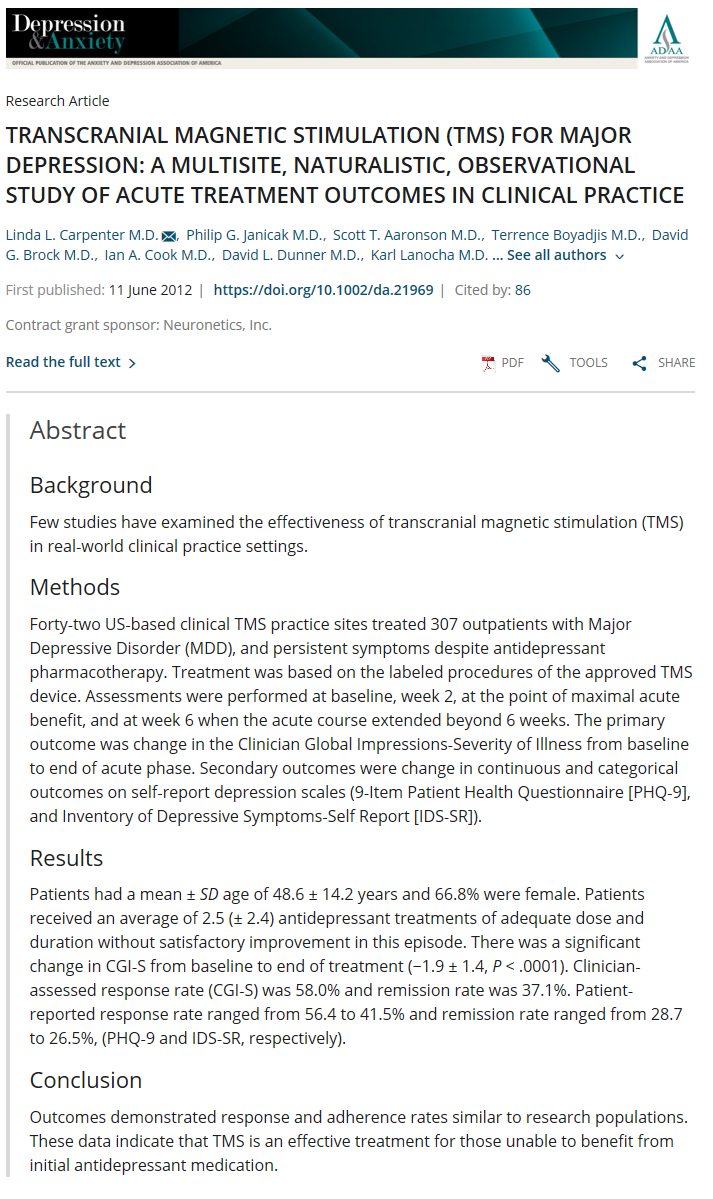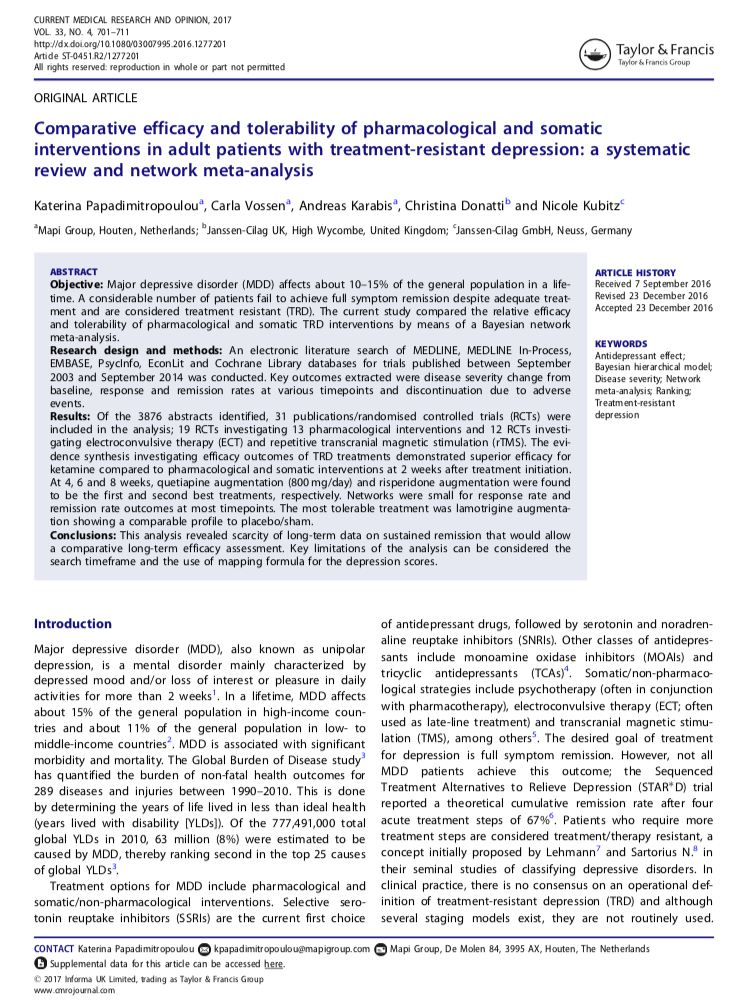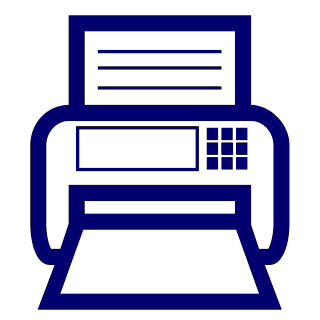Resources
RANZCP guidelines
SUMMARY
This article provides guidance for the management of mood disorders, based on scientific evidence and the expert opinions of psychiatrists. The article describes how depression is diagnosed and the recommended treatment pathway, including the use of TMS, in Australian patients. The recommendations in this paper are used by doctors to treat patients with mental health conditions.The effects of repetitive transcranial magnetic stimulation (TMS) in the treatment of depression
SUMMARY
Research into the use of repetitive TMS for the treatment of patients with depression has been conducted for over 15 years. The aim of this article was to review the development of repetitive TMS as a depression treatment. Most of the trials conducted on the technique have evaluated the efficacy of high-frequency repetitive TMS when applied to the left dorsolateral prefrontal cortexThe effects of transcranial magnetic stimulation last for at least 12 months for most patients that respond to treatment
SUMMARY
This study followed up patients enrolled in Dr Carpenter’s 2012 study for a duration of 1 year.
The results show that with appropriate maintenance the effects of TMS last for at least 1 year in 71% of patients who enter remission, and in 62% of patients who respond. It also shows that if a patient relapses after a course of TMS, they have a very high chance of benefitting from another course of treatment.
TMS is an effective treatment for major depression, resistant to medication
SUMMARY
In this study from 2012, Dr Carpenter and colleagues used TMS to treat patients with major depression. Those patients who did not benefit from one or more antidepressant underwent 30 sessions of TMS over a 6-week period. Clinicians assessed the effects after completion and found that 37% of patients entered remission, and 58% responded. Overall, the treatment was very tolerable and patients adhered well to treatment.
At 6 weeks, TMS is superior to sham and to most other treatment options for depression
SUMMARY
This paper describes a very interesting systematic review and network meta-analysis exploring interventions for treatment resistant depression including TMS, ECT and various pharmacological interventions. The authors reviewed a total of 31 randomised controlled trials across all three intervention types.Transcranial magnetic stimulation in the treatment of obsessive–compulsive disorder: current perspectives
SUMMARY
This paper describes a very interesting systematic review and network meta-analysis exploring interventions for treatment resistant depression including TMS, ECT and various pharmacological interventions. The authors reviewed a total of 31 randomised controlled trials across all three intervention types.